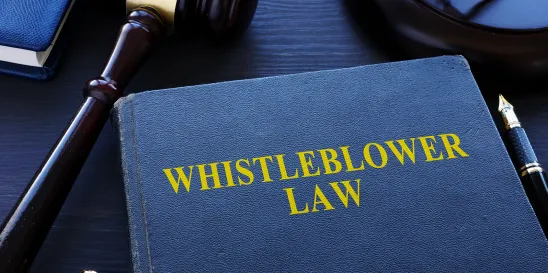In a speech at the ABA’s National Institute on White Collar Crime, Deputy Attorney General Lisa Monaco announced a new pilot whistleblower reward program that fills significant gaps in existing whistleblower reward programs, including the SEC whistleblower program. The DOJ plans to announce the details of the program in approximately 90 days and launch it this year. The program will “create new incentives for individuals to report misconduct.”
Similar to the “original information” requirement that a whistleblower must meet to qualify for an SEC whistleblower award, the DOJ would pay an award to a whistleblower for “help[ing] DOJ discover significant corporate or financial misconduct — otherwise unknown to [DOJ].”
The statutory basis for the award program is existing authority to pay awards for information or assistance leading to civil or criminal forfeitures. In particular, 28 U.S.C. § 524 (c)(1)(C) authorizes the Attorney General to pay “awards for information or assistance leading to a civil or criminal forfeiture involving any Federal agency participating in the [Department of Justice Assets Forfeiture Fund].”
Monaco identified four guardrails for the program. The DOJ would offer payments:
- “Only after all victims have been properly compensated;
- Only to those who submit truthful information not already known to the government;
- Only to those not involved in the criminal activity itself;
- And only in cases where there isn’t an existing financial disclosure incentive — including qui tam or another federal whistleblower program.”
This program could fill a significant gap in the Anti-Money Laundering Act whistleblower reward statute (AMLA) in that the AMLA’s definition of “monetary sanctions” for which a whistleblower can qualify for an award does not include forfeiture. As forfeiture is a common remedy in anti-money laundering and sanctions evasion enforcement actions, the AMLA whistleblower law significantly limits the monetary sanctions from which FinCEN can pay whistleblower awards. By paying whistleblower awards from civil and criminal forfeitures, the DOJ will incentivize whistleblowers to report money laundering and sanctions evasion.
The DOJ’s new pilot whistleblower reward program would also significantly broaden the scope of Foreign Corrupt Practices Act (FCPA) violations for which whistleblowers could qualify for awards. The SEC whistleblower program pays awards for FCPA violations committed by issuers and can pay related action awards when the DOJ takes an enforcement action based on the same original information that the whistleblower gave to the SEC leading to the SEC obtaining an order for monetary sanctions totaling more than $1 million. And the CFTC can pay awards for whistleblower disclosures about violations of the Commodity Exchange Act involving foreign corrupt practices. Until this new DOJ whistleblower pilot program, prospective whistleblowers have not had an incentive to report FCPA violations that do not fall within the jurisdiction of the SEC or CFTC.
Monaco highlighted three types of violations for which the DOJ is especially interested in attracting disclosures:
- Criminal abuses of the U.S. financial system;
- Foreign corruption cases outside the jurisdiction of the SEC, including FCPA violations by non-issuers and violations of the recently enacted Foreign Extortion Prevention Act; and
- Domestic corruption cases, especially involving illegal corporate payments to government officials.
This new DOJ whistleblower reward program, coupled with DOJ initiatives to encourage companies to self-disclose violations and whistleblower pilot programs designed to encourage early and voluntary self-disclosure of criminal conduct by individual participants in certain non-violent offenses, creates strong incentives to report violations promptly and assist with government investigations. As Monaco said in her speech, “knock on our door before we knock on yours.”
The Transactional Records Access Clearinghouse recently released a study finding that the DOJ’s prosecution of white-collar crime has been dropping steadily for the past decade and that “the majority of criminal referrals for white-collar offenses that federal prosecutors receive are closed without prosecution.” The DOJ’s new whistleblower reward program could reverse that trend.
Whistleblower reward programs have been extraordinarily effective in combating corporate fraud. For example, whistleblower disclosures to the SEC have led to enforcement actions with monetary sanctions exceeding $6 billion and have helped the SEC to return more than $1 billion to harmed investors. False Claims Act qui tam actions have enabled the DOJ to recover more than $75 billion. These programs have a demonstrated record of success and will continue to be an important force multiplier to combat white collar crime.




 />i
/>i

